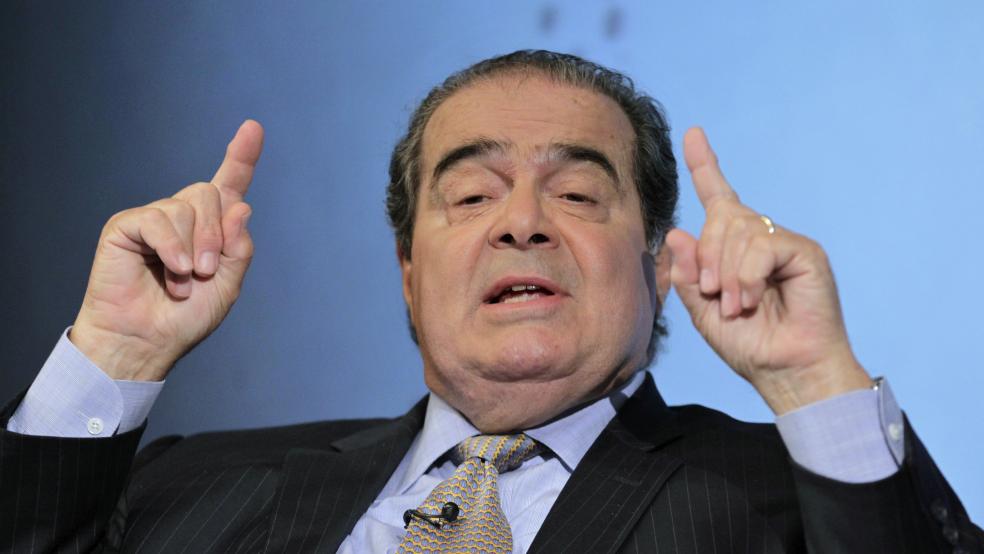Justice Antonin Scalia penned a fiery dissent to the Supreme Court’s ruling upholding the legality of nationwide subsidies for insurance plans purchased through the federal health care exchange.
Scalia blasts the majority decision written by Chief Justice John Roberts as a “defense of the indefensible” and criticizes it for its “interpretive jiggery-pokery” and “somersaults of statutory interpretation.” He calls some of the arguments in the majority decision “pure applesauce.”
Here are some other highlights from Scalia’s withering critique:
Related: It’s Over! Court Upholds Obamacare Subsidies
- “Words no longer have meaning if an Exchange that is not established by a State is ‘established by the State.’ It is hard to come up with a clearer way to limit tax credits to state Exchanges than to use the words ‘established by the State.’ And it is hard to come up with a reason to include the words ‘by the State’ other than the purpose of limiting credits to state Exchanges.”
- “Yet the [majority] opinion continues, with no semblance of shame, that ‘it is also possible that the phrase refers to all Exchanges—both State and Federal.’ … (Impossible possibility, thy name is an opinion on the Affordable Care Act!)”
- “The Court holds that when the Patient Protection and Affordable Care Act says ‘Exchange established by the State’ it means ‘Exchange established by the State or the Federal Government.’ That is of course quite absurd, and the Court’s 21 pages of explanation make it no less so.”
- “This case requires us to decide whether someone who buys insurance on an Exchange established by the Secretary gets tax credits. You would think the answer would be obvious—so obvious there would hardly be a need for the Supreme Court to hear a case about it.”
Related: Presidential Candidates Respond to SCOTUS Obamacare Ruling
- “Under all the usual rules of interpretation, in short, the Government should lose this case. But normal rules of interpretation seem always to yield to the overriding principle of the present Court: The Affordable Care Act must be saved.”
- “Much less is it our place to make everything come out right when Congress does not do its job properly. It is up to Congress to design its laws with care, and it is up to the people to hold them to account if they fail to carry out that responsibility. Rather than rewriting the law under the pretense of interpreting it, the Court should have left it to Congress to decide what to do about the Act’s limitation of tax credits to state Exchanges….The Court’s insistence on making a choice that should be made by Congress both aggrandizes judicial power and encourages congressional lassitude.”
- “Having transformed two major parts of the law, the Court today has turned its attention to a third. The Act that Congress passed makes tax credits available only on an “Exchange established by the State.” This Court, however, concludes that this limitation would prevent the rest of the Act from working as well as hoped. So it rewrites the law to make tax credits available everywhere. We should start calling this law SCOTUScare.”
Top Reads from The Fiscal Times:


